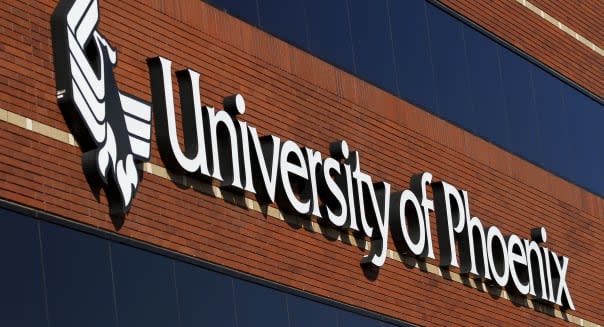E-Schools Lose Their Cool, Measured by Enrollment, Revenue

The once-promising world of online higher learning continues to flunk out. Apollo Education Group (APOL) -- the parent company of the virtual University of Phoenix campus -- is the latest for-profit educator to post problematic enrollment and financial trends.
Apollo saw revenue plunge 19 percent to $679.1 million in its latest quarter. Operating income, after sidestepping various one-time charges, also clocked in lower. The 250,300 students enrolled in degree programs at University of Phoenix is a 17 percent drop from its headcount a year earlier. The university welcomed an incoming class of 32,500 during the fiscal second quarter, but it, too, is a nearly 17 percent drop from last year's crop of new students.
The Tuition Proposition of Dot-Com Degrees
For-profit post-secondary educators were one of the few growth industries during the earliest recessionary stages. Displaced workers and those fearing getting fired turned to online schools to beef up their skills. Web-based universities allow students to engage in coursework on their time. It was usually cheaper to go to an online college.
A U.S. News study last year found that an online undergraduate education is far more economical than traditional education at private schools or out-of-state public institutions. The same can't be said against in-state public universities. The average cost per credit in the study was $243 for brick-and-mortar schools, less than the $277 average per credit in an online bachelor's degree program.
However, folks working full-time jobs, stay-at-home parents or those with transportation limitations don't have much of a choice. The flexibility, convenience, and reasonable cost of obtaining degrees from online programs made the Internet-savvy colleges a popular choice several years ago.
What's Missing From the Virtual College Experience
A lot of things have started to work against the online institutions these days. The government published troubling repayment rates on student loans from folks enrolled in online classes on credit. Some operators -- including Apollo's University of Phoenix -- came under fire for allegedly aggressive marketing tactics.
%VIRTUAL-article-sponsoredlinks%Many have also raised concerns about the efficacy of online curriculums. Student still need to take in classes and pass tests, but some wonder if the lack of human interaction is a hindrance.
The niche got a boost five years ago when a 2009 meta-analysis sponsored by the U.S. Department of Education concluded that learning outcomes in online courses proved superior to those in traditional classroom courses, but that dismisses the face-to-face networking opportunities and the social interactions that encourage retention for conventional institutions of higher learning.
For now, we know which way degree seekers are turning. Apollo's guidance on Tuesday night calls for net revenue of $3 billion to $3.1 billion for all of fiscal 2014, well short of the $3.68 billion it rang up a year earlier. Analysts see Grand Canyon Education (LOPE) growing its revenue in fiscal 2014, but most for-profit post-secondary educators with strong online programs are expected to post flat to falling top-line results.
Motley Fool contributor Rick Munarriz has no position in any stocks mentioned. The Motley Fool has no position in any of the stocks mentioned. Try any of our newsletter services free for 30 days.

